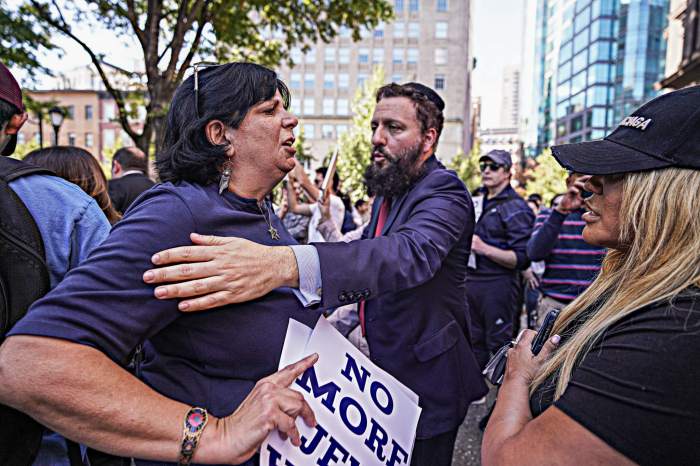
Thousands of charter-school parents and students in matching green shirts marched across the Brooklyn Bridge to City Hall Tuesday and straight into a political whirlwind. If their goal was to flex some political muscle, it was mission accomplished.
But if their purpose was to make Democratic mayoral candidate Bill de Blasio rethink his lack of enthusiasm for the charter movement, we can only hope their voices were heard. With the election less than a month away, de Blasio has a commanding lead over Republican Joe Lhota — a fact that doesn’t bode well for charter advocates.
De Blasio contends the city has enough charter schools — 183 — and proposes to charge them rent for using public school buildings. That move would hamper their ability to expand, force some to cut support services to needy students, and stunt effective educational reform.
Lhota, who marched in yesterday’s demonstration, says he would double the number of charters as mayor and has accused de Blasio of “hypocrisy” for presenting himself as a voice for the poor while opposing the schools.
The facts support Lhota.
Seventy-seven percent of New York’s charter-school kids are eligible for free or reduced-price lunches. The citywide figure is 75 percent.
More than 90 percent of charter-school students are black or Hispanic, compared with 70 percent citywide.
In the city’s poorer areas like the South Bronx, charter-school students score higher on standardized tests than their counterparts in district schools.
Critics claim charters are able to boost their average test scores by discouraging admission of special-education students. But a study by the Manhattan Institute and the Center on Reinventing Public Education found that charter schools have fewer special-ed pupils because fewer apply and because those who do — once enrolled — are more likely to be declassified.
The message from yesterday’s march is that charter schools are public schools that give every child a better chance.

















